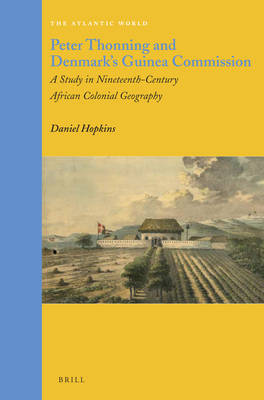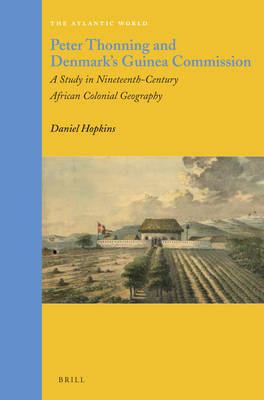
- Afhalen na 1 uur in een winkel met voorraad
- Gratis thuislevering in België vanaf € 30
- Ruim aanbod met 7 miljoen producten
- Afhalen na 1 uur in een winkel met voorraad
- Gratis thuislevering in België vanaf € 30
- Ruim aanbod met 7 miljoen producten
Zoeken
Peter Thonning and Denmark's Guinea Commission
A Study in Nineteenth-Century African Colonial Geography
Daniel Hopkins
€ 453,45
+ 906 punten
Omschrijving
Several years before Denmark legislated against the Atlantic slave trade in 1792, the government, anticipating the decline of production in the Danish West Indies as a consequence, embarked on a policy of agricultural colonization in West Africa. Peter Thonning, a young natural historian of the highly economic and geographical Linnaean school, spent three formative years in Africa and then for decades administered Denmark's African colonial undertakings. The international movement of colonial news and ideas can very usefully be traced in his unpublished writings, especially among the Guinea Commission's extraordinarily wide-ranging records. These rich archives and contemporary published opinion in this cosmopolitan Scandinavian society open fresh perspectives on the broader history and geography of European colonialism.
Specificaties
Betrokkenen
- Auteur(s):
- Uitgeverij:
Inhoud
- Aantal bladzijden:
- 760
- Taal:
- Engels
- Reeks:
- Reeksnummer:
- nr. 24
Eigenschappen
- Productcode (EAN):
- 9789004228689
- Verschijningsdatum:
- 16/11/2012
- Uitvoering:
- Hardcover
- Formaat:
- Genaaid
- Afmetingen:
- 155 mm x 235 mm
- Gewicht:
- 1295 g

Alleen bij Standaard Boekhandel
+ 906 punten op je klantenkaart van Standaard Boekhandel
Beoordelingen
We publiceren alleen reviews die voldoen aan de voorwaarden voor reviews. Bekijk onze voorwaarden voor reviews.








